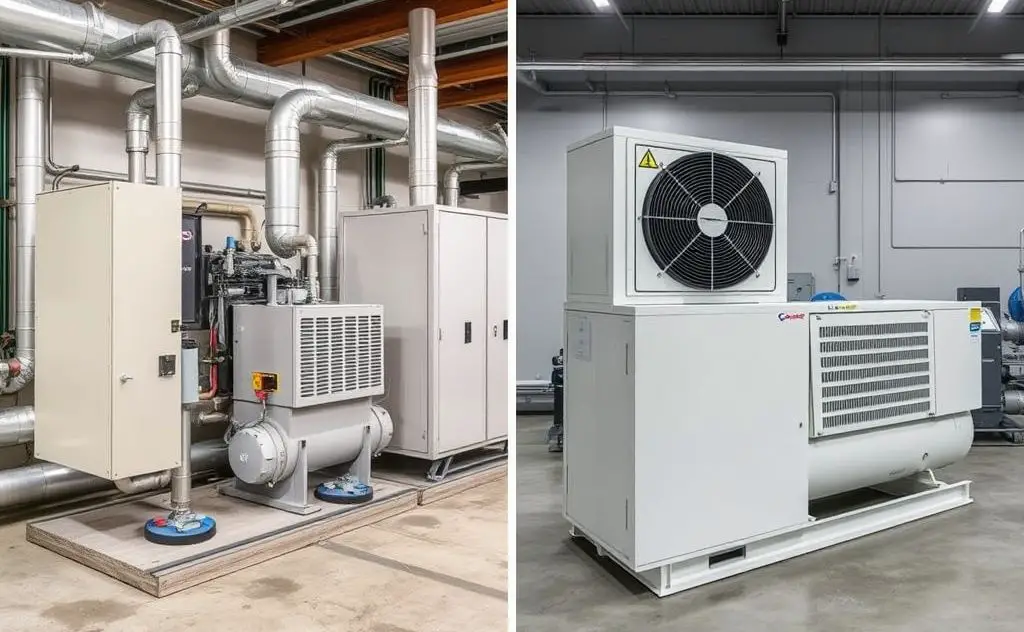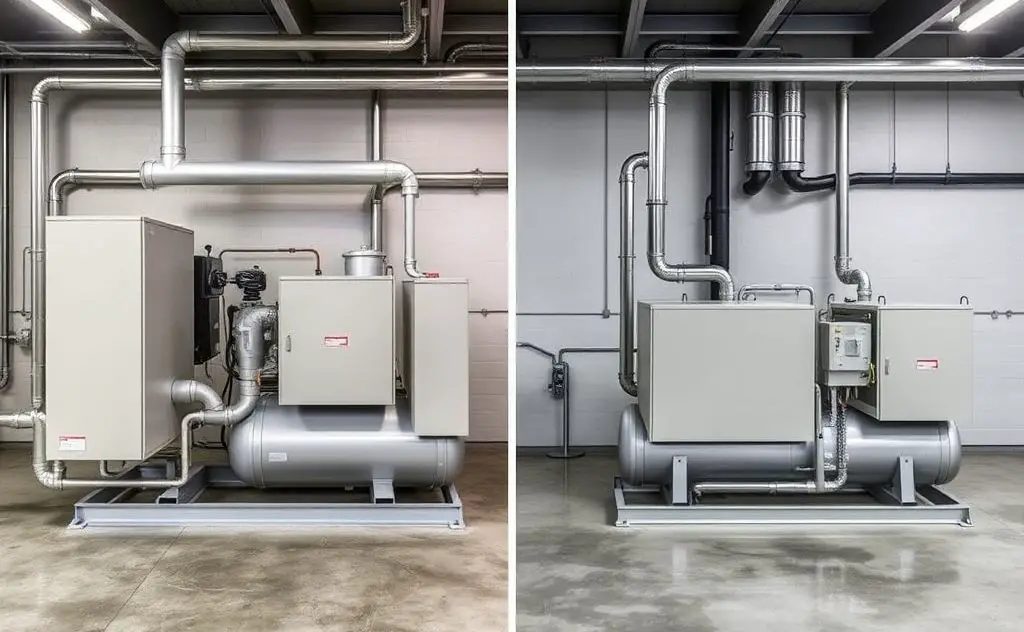HVAC (Heating, Ventilation, and Air Conditioning) systems regulate indoor climate, while chillers specifically cool fluids for air conditioning or industrial processes.
Understanding the difference between HVAC and chiller systems is vital for proper climate control in buildings and industrial processes. While both regulate temperature, they serve distinct purposes with unique operating principles.

What is an HVAC System?
HVAC stands for Heating, Ventilation, and Air Conditioning. These systems provide complete climate control for indoor spaces through three core functions:
- Heating: Uses furnaces or heat pumps to warm air
- Ventilation: Circulates and filters indoor air
- Air Conditioning: Cools and dehumidifies air
HVAC systems are common in homes, offices, and commercial buildings. They maintain comfortable temperatures year-round by switching between heating and cooling modes as needed. For specialized heating solutions, consider built-in gas heaters or electric heaters that resemble wood stoves.
How HVAC Cooling Works
Most HVAC systems use refrigerant-based cooling:
- Warm air passes over cold evaporator coils
- Refrigerant absorbs heat from the air
- Compressor pumps refrigerant to outdoor condenser
- Heat releases outside through condenser coils
- Cooled refrigerant returns to evaporator

What is a Chiller System?
Chillers are refrigeration machines that remove heat from liquids rather than air. They’re primarily used for:
- Industrial process cooling
- Large commercial buildings
- Specialized equipment cooling
Chillers circulate chilled water through pipes to air handlers or process equipment. The two main types are:
| Type | Cooling Method | Efficiency |
|---|---|---|
| Vapor Compression | Mechanical refrigeration cycle | High |
| Absorption | Heat-driven refrigeration | Moderate |
Chiller System Components
A complete chiller system includes:
- Compressor or absorber
- Evaporator
- Condenser
- Expansion valve
- Pump system
- Cooling tower (for water-cooled models)
Key Differences Between HVAC and Chillers
1. Cooling Medium
HVAC systems cool air directly, while chillers cool water that then cools air or processes. This makes chillers more efficient for large-scale cooling applications.
2. System Complexity
Chiller systems are more complex with separate water and refrigeration circuits. HVAC systems combine all components into a single unit.
3. Application Scale
HVAC is ideal for small to medium spaces. Chillers excel in large facilities like:
- Factories
- Data centers
- Hospitals
- University campuses
4. Temperature Control
Chillers offer precise temperature control for processes, while HVAC maintains comfortable ambient temperatures. Industrial chillers can cool liquids to near-freezing temperatures if needed.
5. Energy Efficiency
According to U.S. Department of Energy, modern chillers can be 30-50% more efficient than conventional HVAC for large cooling loads. However, HVAC systems are more efficient for small spaces.
When to Use Each System
Choose HVAC For:
- Residential buildings
- Small offices
- Retail spaces
- Basic temperature control
Choose Chillers For:
- Industrial processes
- Large commercial buildings
- Precision cooling needs
- High heat load applications
For specialized heating needs in industrial settings, industrial heater blowers may complement chiller systems.
Maintenance Considerations
HVAC systems require:
- Regular filter changes
- Coil cleaning
- Refrigerant checks
Chiller maintenance includes:
- Water treatment
- Condenser cleaning
- Pump inspections
- Leak detection
As noted by ASHRAE, proper chiller maintenance can improve efficiency by 15-20%.
